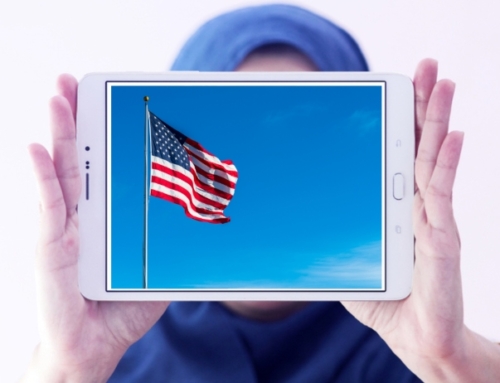Confronting Islamophobia
Some people often conflate being Muslim with being a terrorist. Unfortunately many uninformed, scared (of what they don’t understand) or hateful people assume all Muslims have secret evil agendas against Westerners, especially against U.S. citizens. Media analyst Steve Randall explains that bigotry is about “dehumanizing members of a group and assigning to them negative traits.” This bigotry is what many Muslims in the United States are forced to deal with. Since 9/11, anti-Muslim sentiment has increased and become acceptable in mainstream American culture. Making inappropriate or discriminatory comments about Muslims is not punished like racist or anti-Semitic comments and is not even just tolerated, but in fact, these comments are appreciated by some.
Dispelling Misconceptions
There are others who hold the assumption that even though not all Muslims are terrorists and will commit acts of violence, the majority morally support terrorist acts and do not speak out enough against them. Their argument is that there many of the terrorist attacks on American soil were committed by Muslims and therefore Islam must be an inherently violent religion. This is based on the selective labeling of terrorism to crimes committed by Muslims while simultaneously leaving out mass shootings, abortion clinic bombings, and the many other forms of political violence against citizens or the government that go unreported. They believe that Muslims want to force their laws on all Americans and turn the U.S. into a theocracy. Muslims are often told to “go back home” even though they are born and live in America and are politicians, lawyers, doctors, teachers, business owners, athletes, and police officers. The only thing they can do to become “American” and please Islamophobes is to leave Islam.
Navigating Identity
Many young Muslims who were born post-9/11 do not remember a place where Islam and Muslims were not constantly targeted and discriminated against. They only know a world where they wake up everyday to people telling them that their religion is a problem. This is not normal. It creates an identity crisis in young Muslims and further alienates them. In school or the workplace, young Muslims feel like they need to abandon part of their Islamic identity in order to fit in. For example, young Muslim women sometimes feel pressured to take off or modify their hijab so they do not stick out or become the target or verbal or physical abuse. At home and in the Muslim community, they feel they betray their American identity by doing things that some of their non-Muslim peers would laugh at or find strange. They are in a constant struggle with their identity.
Challenging Stereotypes
There is a constant need to prove their American identity and patriotism. When wearing Islamic attire, young American Muslims often have to do so in a manner that tells non-Muslim Americans that they are not oppressed, a terrorist, or foreigner. Many Muslims who are born in America or even converts express the surprise on many people’s faces when they hear them speak fluent English. There is just an assumption that a Muslim cannot be an American. The constant demand to prove their Americanness creates internalized racism which consists of accepting society’s prevailing stereotypes. This leads to American Muslims being afraid or ashamed of their Muslim identity or even internally hate those who make them feel unwelcome and alienated despite their relentless effort to prove that they are “just like everyone else.”
Building a Welcoming Society
If we wish to counter-terrorism, it starts not by reinterpreting or reforming Islam, but by reforming society and making it a more welcoming place. Young people who know no other country besides America, but are constantly told they are not American, will eventually lead some of them to feel isolated and commit acts of violence. Muslims need to feel welcome and equal to all other Americans. This will lead to healthier young Muslims who will not be alienated and as a result give more back to society.
Got Questions?
We have Answers. Get in touch now.








